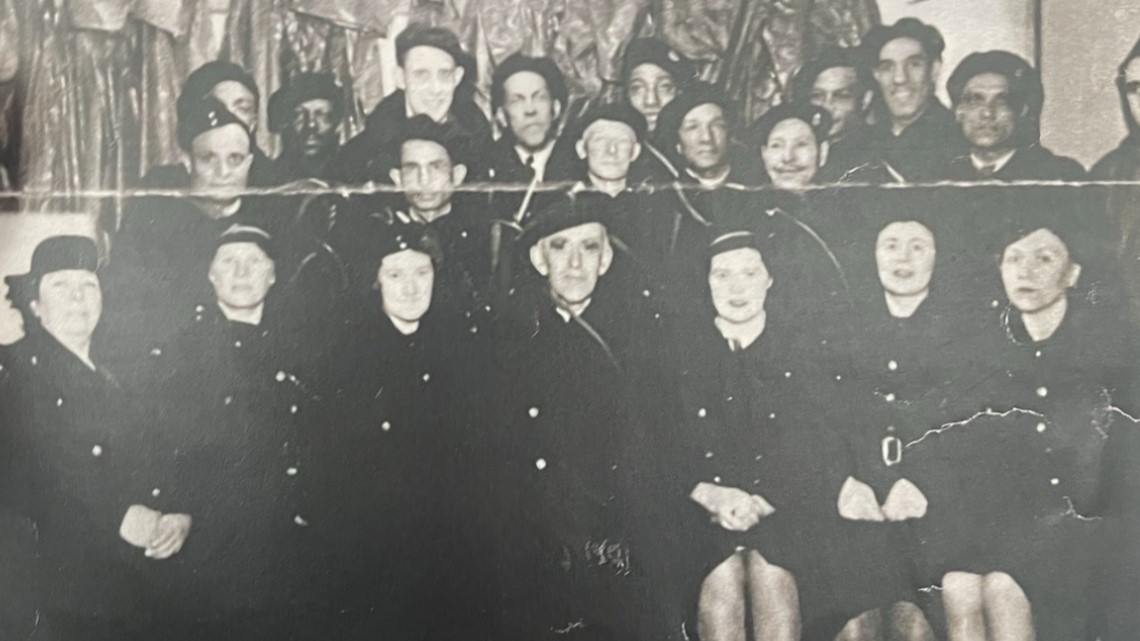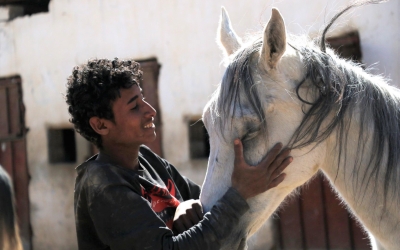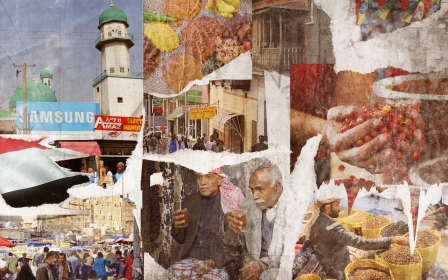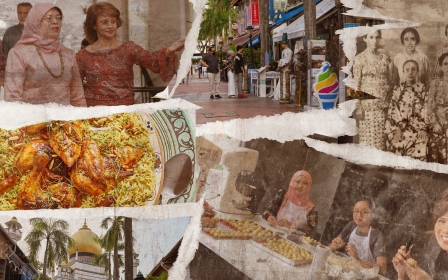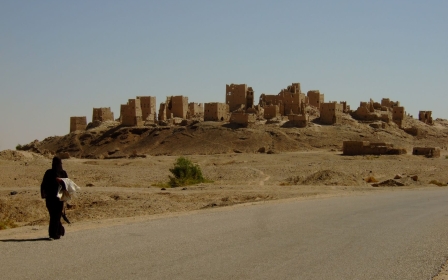The Yemenis of Cardiff: Britain’s oldest Muslim diaspora
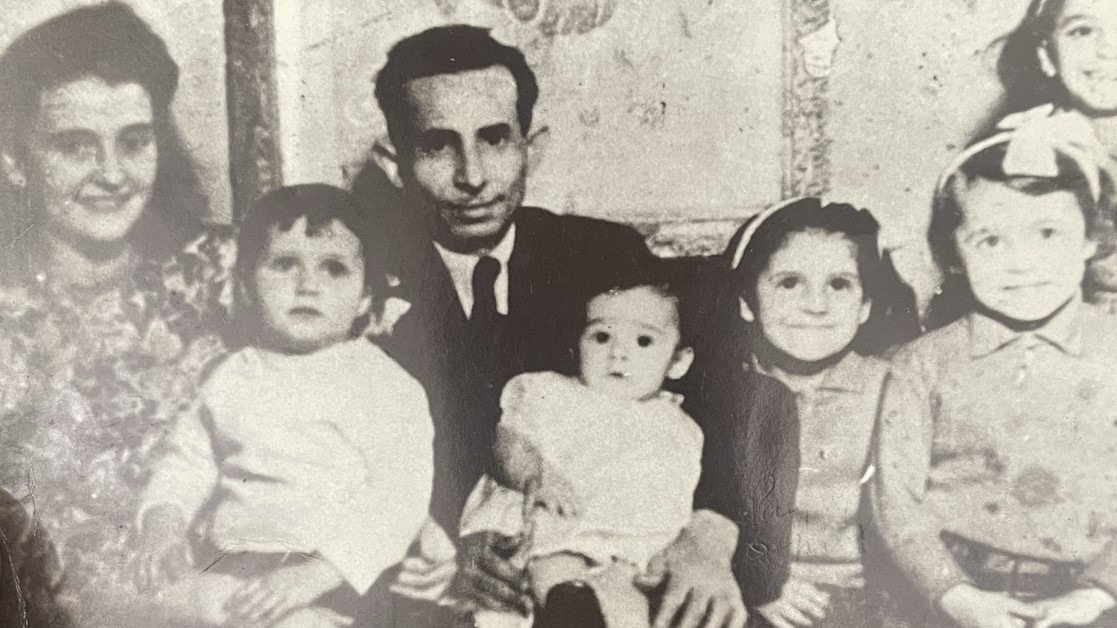
Nearly four million people identify as Muslim in the UK, making the country home to one of the largest Muslim communities in Europe.
The population is an elaborate collection of ethnicities and languages, with origins from Casablanca to Kuala Lumpur and Mirpur to Mogadishu.
Up until World War Two, however, Muslims numbered only a small fraction of the population, and consisted largely of lascar sailors from Yemen, Somalia and British India.
During the 19th and early 20th centuries, Yemenis, many of whom hailed from the highland villages surrounding Taiz, took jobs in the Merchant Navy.
They were particularly sought after in engine rooms, as boilermen, greasers, and stokers, because they could tolerate the heat far better than British sailors.
New MEE newsletter: Jerusalem Dispatch
Sign up to get the latest insights and analysis on Israel-Palestine, alongside Turkey Unpacked and other MEE newsletters
The Yemeni reputation for heat resistance has deep roots. An ancient joke tells of angels visiting hell to check on the sinners imprisoned there. They open the doors of each furnace and each nationality begs to be freed. But when they reach the final room, the qat-chewing Yemeni inside turns to the angels, takes a drag from his shisha-pipe and says: "Could you shut the door please? I’ll catch a death from the cold."
Making a home in Wales
The opportunity to settle in Britain followed jobs in the Navy, especially in port areas such as South Shields, Liverpool and Cardiff, the last of which was closely linked to the British Protectorate of Aden through the shipment of coal.
After unloading their cargo in Aden, some Cardiff ships would take Adeni stone back to Wales with them, so they wouldn’t return empty-handed. This is noticeable today on the Edwardian facades of Cathedral Road, in the north of the city.
This first set of immigrants had to contend with a climate, cuisine and urban space that was totally removed from their home environment.
They left their tight extended families and clans behind, and grouped together in terraced boarding houses, with the first "Home for Coloured Seamen" established on Cardiff’s Bute Street in 1881.
These were places where men would eat Yemeni food, sip sweet, cardamom-infused tea ,and play cards late into night.
By the time of the First World War, Yemeni sailors contributed to the British naval effort in a way that belied their numbers. As many as 3500 Yemenis lost their lives in the first and second world wars.
On the home front, they played an indispensable role as volunteer firemen, patrolling their dockland homes, which faced some of the most intense raids of the 1940-41 Blitz.
However, the community went from comrades in wartime to unwanted competition in the interwar period.
Many Yemenis were barred from trade unions, and widespread destitution set in during the Great Depression.
The historian Humayun Ansari writes that many laid-off Yemeni sailors were left "virtually starving", and 600 were deported following race riots in 1930.
Settling in
Boarding houses not only offered respite, but a refuge from discrimination and despair.
It was in one of these Butetown boarding houses that Ali Salaman first began working as a cook in the 1930s. Cardiff marked the end of a remarkable journey for the young man. Orphaned at the age of nine, he walked 400 kilometres from his home in Zabid on the Red Sea coastal plain of Tihama to the port of Aden.
There, he got a job in the British garrison, working for the Camel Corps. After a job making helawa sweets, the 18-year-old Ali decided to board a ship bound for Marseille, and from there took a steamer on to Cardiff.
The early Yemeni migrants to Cardiff often sought to embrace their receiving country, with many taking Welsh wives. Ali married Olive, a girl from Tredegar in the Rhymney Valley, and they had 10 children together.
Initially, her devout Protestant family rejected him as a "heathen", but they eventually warmed to his charisma, generosity and work ethic.
One of their children was Daoud, a fitting name for a Welsh Yemeni, who I sat down with at Bab al-Yemen restaurant, over a lunch of lamb mandi and sizzling fahsa stew.
His father set up "Cairo Cafe" in the early 1940s, a restaurant which writ large the communal atmosphere of the boarding houses and offered novel flavours to the local Welsh.
It attracted Arab royalty on their visits to the UK, and Daoud Salaman recalls how every Eid, Egyptian President Gamal Abdel Nasser would send Ali and his family a card.
Daoud was born in 1948, and grew up in Butetown, which looked rather different to how it is today. Butetown and Cardiff Docks formed the area of Tiger Bay, a teeming community of terraced houses and shops, which has since been flattened and redeveloped.
Around the UK, economic and demographic shifts have consigned areas like it to history: after World War Two and a dearth of maritime work, many Yemenis moved to inland cities such as Birmingham and Sheffield to work in factories and steel mills.
Tiger Bay hosted one of the oldest multiethnic communities in Britain, with migrants from Somalia, southern Europe and the Caribbean, alongside the Yemeni diaspora. Daoud recalls how, in the 1950s and 60s, residents from all backgrounds would "line the streets" for the Muslim parades, led by the Alawi Sufis of Sheikh Abdullah Ali al-Hakimi, the leader of the British Yemeni communities at the time.
He remembers Tiger Bay as a melting pot, "where no-one saw colour… until we went outside it. Then we had to stick together, to defend ourselves".
Members of the Salaman family went on to play their own role in British history. Daoud’s older brother Mashallah "Taffy" Salaman became a racehorse trainer, and his horse Churchtown Boy finished second to Red Rum in the 1977 Grand National.
Returning ‘home’
Daoud, meanwhile, maintained a strong connection to Yemen, and travelled to Aden as a 16-year old, to study Arabic and Islamic jurisprudence. Without immediate family to host him, he was taken in by the ruler of al-Mukha, Sayyid Abd al-Noor al-Nahari.
His mention of al-Mukha made me blurt out "al-Shadhili", whose Sufi order first popularised coffee use, which eventually spread to Europe through Indian Ocean traders and the Ottomans.
We continued onto the topic of the ancient kingdom of Saba (Sheba) and its famous Marib dam, and Daoud - a repository of this most ancient of Arab cultures - concluded: "Coffee, terraced agriculture, the Arabs themselves… they all started in Yemen."
'Coffee, terraced agriculture, the Arabs themselves… they all started in Yemen'
- Daoud Salaman, Cardiff
When Daoud returned to the UK from Yemen after two years away, he was greeted by 40 of his family and friends at Cardiff Central station, dressed in a jacket and qamis, with a shemagh (scarf) tied around his head and a curved jambiya dagger tucked into his belt. This homecoming marked the end of a rite of passage in Daoud’s British-Yemeni identity.
Daoud grew to play an eminent role within Cardiff’s Yemeni community. He helped establish the South Wales Islamic Centre, which he now chairs, in the late 1970s. It remains a vital institution for both the Yemeni and wider Muslim community, and has resisted some of the more alarming developments which have afflicted the British Muslim diaspora.
“Anjem Choudhary’s boys came down in about 1990 trying to spread their rubbish. I told them where to go,” he says of the Al-Muhajiroun group, which rose to prominence in that period.
The story of the Salaman family, a story of empire, immigration and an identity straddling both Britain and Yemen, is one which recurs in Muslim communities around the UK.
Daoud is one of only a handful of Yemeni elders still left in Cardiff. They remain a vital link to a foundational chapter in British Muslim history.
Middle East Eye delivers independent and unrivalled coverage and analysis of the Middle East, North Africa and beyond. To learn more about republishing this content and the associated fees, please fill out this form. More about MEE can be found here.


